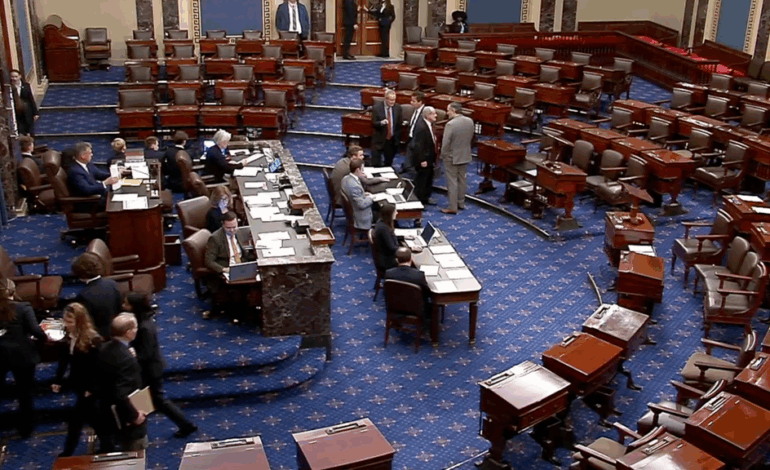Senate Votes Again as Government Shutdown Enters Third Week

The United States government remains in a state of shutdown as the Senate conducted its ninth vote on a House-passed measure aimed at funding government operations. This ongoing situation, which began on September 30, 2023, has left numerous federal agencies without the financial resources they require to operate effectively.
Senate Majority Leader Chuck Schumer emphasized the urgency of the situation, stating, “We need to come together to support our government and the services it provides to the American people.” The vote on October 4, 2023, reflects growing frustration among lawmakers as the deadline for resolving the budget impasse draws closer.
As the shutdown continues, the impact on federal employees and essential services is becoming increasingly evident. More than 800,000 federal workers have been furloughed or are working without pay. Essential services, including national parks and federal courts, are also affected, leading to widespread disruptions across the country.
Political Stalemate Persists
The crux of the funding debate hinges on the House of Representatives’ proposed budget, which includes significant cuts to various programs. House Speaker Mike Johnson defended the proposal, asserting that it aims to reduce government spending by approximately $6 billion. Critics argue that these cuts could adversely affect essential programs and public services.
Discussions among lawmakers have revealed deep divisions between the two major political parties. While some members advocate for bipartisan negotiations to reach a compromise, others remain steadfast in their positions, complicating the potential for a swift resolution.
The Senate’s repeated attempts to advance funding measures highlight the urgency to address the shutdown. However, many analysts suggest that without significant bipartisan support, a quick resolution may remain elusive.
Consequences of the Shutdown
The ramifications of the government shutdown extend beyond federal employees. Many private sector businesses that rely on government contracts are also feeling the effects, leading to concerns about economic stability. Furthermore, public services such as social security, veterans’ benefits, and healthcare programs are at risk of disruption if funding is not restored.
According to the Congressional Budget Office, a prolonged shutdown could lead to a loss of economic output, impacting millions of Americans. With the ongoing uncertainty, many families are left wondering how the impasse will affect their livelihoods.
As the Senate prepares for potential future votes, the focus remains on finding a viable solution to avert further economic consequences and restore government functions. Lawmakers continue to negotiate behind closed doors, hoping to reach an agreement that will bring the shutdown to an end.
The situation remains fluid, and updates will follow as the Senate continues its deliberations on this critical issue.






